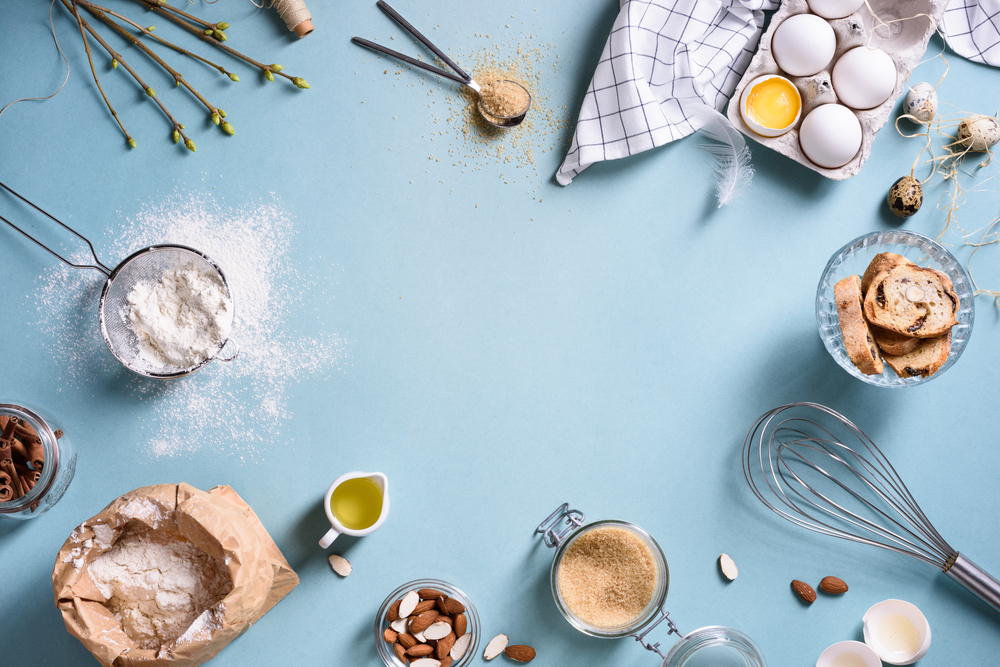As fast as a Pop-Tart? More filling than an energy bar? Definitely cheaper than the drive-thru.
This back-to-school season, discover make-ahead, packable breakfasts. “I don’t remember the last time I ate breakfast sitting at a table,” says Kelsey Sprowell, an account manager at a Denver tech startup. With her 40-hour workweek, a husband in medical school and a 15-month-old daughter, efficient food prep is essential.
Sprowell keeps packable, individual breakfasts wrapped and ready in the fridge and freezer, preparing burritos, smoothies, pancakes and more.
Initially, she bought store-made breakfast burritos from an upmarket grocery store deli. “They were good, but five bucks apiece. That adds up! If we both had one, that’s $40 or $50 a week just for breakfast.
“To get healthy food and make the dollar stretch, I’ve found weekly meal planning, regular Saturday grocery shopping and preparing ahead of time is the only way we all get fed. Scrambling at the last minute is more stressful.”
Ten percent of American adults regularly skip breakfast, according to The NPD Group Inc., a market research company headquartered near New York. Teens are more likely than younger children to miss a morning meal. Just 5 percent of breakfasts are prepared in-home and then eaten on the go.
With ingredients on hand, Sprowell can make a dozen burritos in a half hour on the weekend. In a large skillet, brown a pound of bacon, mild sausage, chorizo sausage or other ground meat. Drain. Chop if necessary. Set aside. Wipe out the skillet, and scramble a dozen eggs in it. Add cooked eggs to cooked meat. Stir in 6 ounces of shredded cheese and a 16-ounce jar of prepared salsa (drain some of the liquid away first).
Lay out 12 flour tortillas. Open a 16-ounce can of refried beans, and spread an equal amount on each tortilla. Using an ice cream scoop, place a scoop of the meat mixture on each. Roll, fold, wrap each in foil and freeze. (To fold like a champ, not a chump, search YouTube for video demos, use a pliable, fresh tortilla and don’t overfill.)
To eat, remove from freezer, take off foil, wrap in a paper towel, and microwave two minutes, turning once.
For a high-schooler, preparing make-ahead burritos would be a self-reliant way to have a filling, quick breakfast.
“They’re super-convenient,” Sprowell says, “as easy as toasting a Pop-Tart.” Her husband’s med-school classmates ask for her method, adding they’re tired of energy bars for breakfast.
Smoothies are another go-to, packable breakfast. Sprowell starts with four small, plastic-box containers. Divide a bag of chopped kale among them. Atop each, place a whole peeled banana, broken in half to fit, and a half-cup of fresh or frozen berries. “Measure the berries, otherwise you get carried away and put in too many,” Sprowell says. Top each with a tablespoon of ground flaxseed, pop the lid on and freeze.
When ready to eat, measure two cups of almond milk or coconut water into a blender. Add the frozen contents of one container. Blend, pour into a sip-able container, and drink in the car.
A high-schooler who wants more calories can add a tablespoon of coconut oil, protein powder, or peanut or almond butter.
For packable breakfasts, Sprowell has found steel-cut oats hold up better than rolled oats. On the weekend, she cooks half a dozen servings, lets the oats cool, and stores them in the fridge right in the saucepan. In the morning, scoop a serving into an individual, transportable glass container. Top with a quarter-cup each of dried fruit and chopped nuts, a bit of ground flaxseed and a drizzle of sweetener: honey, agave or maple syrup. “At work, microwave it for a minute, stir and eat.” Add coconut milk if you have some stashed in the break-room refrigerator.
With her job and her husband’s 80-hour weeks at the hospital, Saturday mornings are the day they eat together. “It’s always pancakes,” Sprowell says. She keeps fresh buttermilk on hand and makes a full recipe of Martha Stewart’s classic buttermilk pancakes. Extra pancakes are cooked, cooled and individually frozen.
“For weekday breakfasts, take a couple out and put in the toaster. The buttermilk in them makes them taste as if they’re fresh off the griddle. That’s a hot, fast breakfast that doesn’t take anything more than a toaster.” Their toddler daughter enjoys her pancake plain, cut up with pieces of banana.
“It’s enjoyable to make your own food and satisfying,” Sprowell says. “Monday mornings are hard enough. When you have breakfasts ready to go in the fridge or freezer, it makes everything easier.”
Carrot cake breakfast cookies
Prep: 40 minutes
Bake: 12-15 minutes
Makes: 40 small cookies
These bite-size cookies from “The School Year Survival Cookbook” by Laura Keogh and Ceri Marsh offer another idea of what to back for grab-and-go breakfasts.
1 cup oats
3/4 cup whole wheat flour
1 1/2 teaspoons baking powder
1 teaspoon ground cinnamon
1/4 teaspoon salt
1 egg
1/2 cup maple syrup
2 tablespoons coconut oil or butter, melted
1 teaspoon vanilla
3/4 cup grated carrots (about 2 medium carrots)
1 Heat the oven to 350 degrees. Line two baking sheets with parchment paper.
2 In a medium bowl, stir together the oats, flour, baking powder, cinnamon and salt. In a separate bowl, whisk together the egg, maple syrup, coconut oil and vanilla. Add the dry ingredients to the wet ones and stir just until combined. Now stir in your carrots.
3 If you have time, chill the dough for about 30 minutes. This will stop the cookies from spreading out too much in the oven. If you don’t have time, not to worry. You’ll have thinner but still delicious cookies.
4 Drop tablespoon-size balls of dough onto the prepared baking sheets, leaving an inch or two between each. Back on the middle rack until the cookies are brown at the edges and just set on top, 12 to 15 minutes. Remove from oven. Let cool a few minutes before transferring to a rack to cool completely. Cookies will keep in an airtight container for up to 5 days or freeze for up to a month.
Nutrition information per serving: 35 calories, 1 g fat, 1 g saturated fat, 5 mg cholesterol, 6 g carbohydrates, 3 g sugar, 1 g protein, 37 mg sodium, 1 g fiber
By Cheryl Stritzel McCarthy who is a freelance writer.
Source: www.chicagotribune.com






Leave A Comment
You must be logged in to post a comment.